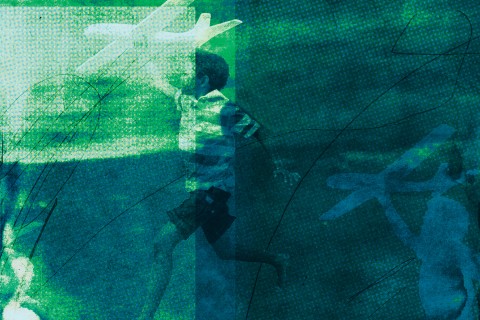Separating fact from fiction in Vatican leaks case
c. 2012 Religion News Service (RNS) For the last six months, the so-called Vatileaks affair has rocked the frescoed halls of the Vatican, plunging the global center of the Roman Catholic church into turmoil.
Sparked by the publication of dozens of confidential documents, the scandal has led to the arrest of Pope Benedict XVI's personal butler and might even be linked to the ouster of the president of the controversial Vatican Bank.
But, as in most things Vatican, it has at times been difficult to tell fact from fiction. Amid the media frenzy, people have often been left wondering what is actually going on inside the Holy See. Here's what we know:
What's been revealed?
The leaked documents vary in content: most simply give interesting details on the inner workings of the Vatican bureaucracy, or on Rome's take on local church developments. For example, a letter by Chicago Cardinal Francis George shows how he asked the Vatican to block the Community of Sant'Egidio, a Catholic movement, from giving a "pro-life" award to Illinois Gov. Pat Quinn for ending the state's death penalty. George argued that the award was inappropriate because Quinn supports abortion rights.
But only two major stories have emerged: the allegation of widespread "corruption" by the Vatican City State's No. 2 official, who is now the pope's ambassador to the United States; and details of a behind-the-scenes wrangling over new Vatican financial transparency norms, part of an effort to align the Holy See to international standards.
How has the Vatican reacted?
The Vatican's official reaction has been twofold: Benedict has tasked three retired cardinals with conducting a wide-ranging inquiry on the leaks and their origin, with the power to question even fellow cardinals. The Vatican judiciary has been conducting a criminal investigation that led to the arrest the pontiff's butler, Paolo Gabriele, after he was found in possession of confidential documents. The two inquiries are linked but distinct.
The Vatican has also threatened a lawsuit against Italian journalist Gianluigi Nuzzi's publisher for the book that started the leaks, but this hasn't happened yet.
What will happen to the butler?
Gabriele is now in custody within the Vatican, awaiting a judge's decision on whether he will have to stand trial. He is assisted by two lawyers and has promised to cooperate with the investigation. If found guilty, he could face up to eight years in jail, but some expect that the pope could issue a pardon.
What don't we know?
The big unanswered question: who is behind it all? While most observers agree that Gabriele could hardly have acted alone, there are no facts to substantiate this. Reports in the Italian media that one or more cardinals had been found to be involved have been consistently denied by the Vatican. The cardinals' commission has questioned 23 people so far, including "superiors" of Vatican departments. The fact that the investigation is ongoing after the butler's arrest signals that there is more to it.
More generally, most analysts frame the leaks in what they describe as a rift between the pope's right hand man, Vatican Secretary of State Cardinal Tarcisio Bertone, an expert in church law and theology, and the "old school" of Vatican diplomats who traditionally ran the Holy See's administration, led by Bertone's predecessor, Cardinal Angelo Sodano. The Vatican's official line is that some contrasts are normal in any institution but shouldn't be overblown.
Why is the Vatican blaming the media?
The Vatican's No. 3 official has qualified the publication of the leaked memos as an "immoral act of unheard-of gravity," while Bertone has accused journalists of trying to "imitate Dan Brown," the popular "Da Vinci Code" novelist who made a cottage industry out of Vatican intrigue. While some media reports have been far fetched, Vatican officials have failed to offer insight into the events revealed by the leaks that would help contradict the Hollywood-inspired interpretations of the events.
And what about the Vatican Bank?
On May 24, the lay board of the Institute for the Works of Religion, usually known as the Vatican Bank, dismissed the bank's president, Ettore Gotti Tedeschi. Officially, this was the consequence of Gotti Tedeschi's weak leadership.
But Vatileaks documents show that he was at odds with Bertone over norms that should ensure that the Vatican is accepted into a European list of financially transparent countries. A leaked memo by one of the bank's board members -- American Carl Anderson, supreme knight of the Knights of Columbus -- contains a veiled accusation against Gotti Tedeschi as a possible source of the leaks.
Why does it all matter?
As the investigation is still ongoing, it is impossible to judge whether the scandal will have far-reaching consequences within the Vatican or for Benedict's papacy. But one thing is sure: the scandal threw an unwelcome spotlight on the embarrassing disarray of the Catholic Church's central government. That could well influence the next conclave, when cardinals might choose to elect a pope with a stronger grip on the Curia than Benedict.





